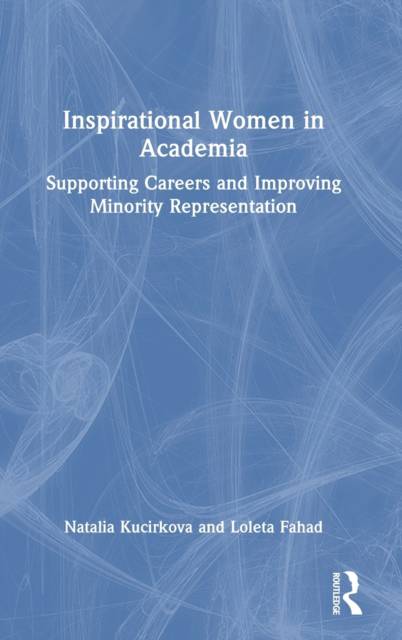
- Retrait gratuit dans votre magasin Club
- 7.000.000 titres dans notre catalogue
- Payer en toute sécurité
- Toujours un magasin près de chez vous
- Retrait gratuit dans votre magasin Club
- 7.000.0000 titres dans notre catalogue
- Payer en toute sécurité
- Toujours un magasin près de chez vous
Inspirational Women in Academia
Supporting Careers and Improving Minority Representation
Natalia Kucirkova, Loleta FahadDescription
Expert-led, interdisciplinary, and international in scope, this insightful book aims to increase the representation and leadership potential of women working in academia, examining the intersection of multiple inequalities with a specific focus on gender, age, ethnicity, and disability. A carefully crafted response to educational inequalities, the volume posits an invitation for dialogue around what it means to have success in higher education.
This book expands the reader's understanding of leadership in academia and the challenges specific to individual career pathways, offering a plethora of practical tried-and-tested strategies that individuals and institutions can adopt to create a more equal and socially just academic climate. Designed to encourage reflection on potential strategies and how they could be implemented, the ten co-authored chapters include first-person narratives, case studies inspired by interviews with academics, and links and recommendations for further reading. The personal accounts of the authors are enriched with those of other academics who have faced challenges in career progression. Each chapter is structured as a conversation between the authors in relation to an inequality issue, with a summary of scholarly literature and studies on the topic, followed by strategies successfully applied in practice. Strategies presented are firmly rooted in the everyday reality of working as a researcher, higher education lecturer, or academic administrator.
This book is ideal reading for any minority working in higher education interested in promotion processes, equality and diversity in the workplace, and mentoring. It will also be of interest to providers of academic leadership courses, organisations, and institutions promoting gender equality in higher education, supporting women's careers, and improving the representation, progression, and success of Black, Asian, and Minority Ethnic (BAME) staff and students within higher education.
Spécifications
Parties prenantes
- Auteur(s) :
- Editeur:
Contenu
- Nombre de pages :
- 186
- Langue:
- Anglais
Caractéristiques
- EAN:
- 9781032015002
- Date de parution :
- 27-12-22
- Format:
- Livre relié
- Format numérique:
- Genaaid
- Dimensions :
- 156 mm x 234 mm
- Poids :
- 453 g

Les avis
Nous publions uniquement les avis qui respectent les conditions requises. Consultez nos conditions pour les avis.






